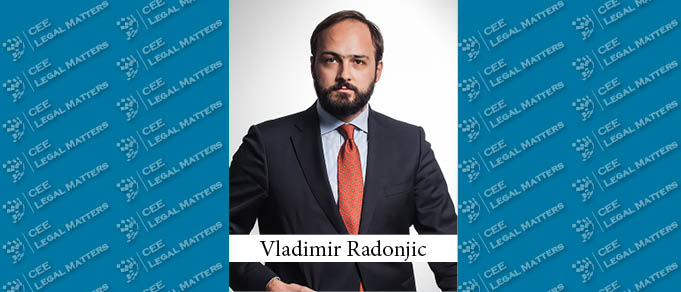Montenegro is a popular destination these days for IT businesses seeking to relocate primarily from the countries currently at war, with its tourism and real estate sectors growing again, according to Radonjic/Associates Managing Partner Vladimir Radonjic.
"In Montenegro, similarly to other Western Balkans countries, unfortunately, politics is the priority topic and a part of every discussion and, in turn, is affecting society and various industries," Radonjic begins. "Following the 2020 parliamentary elections, we witnessed a major historical change resulting in the shifting of power to the opposition, after 30 years," he says. "A new government was formed recently, a very unusual coalition, since the party that was ruling for 30 years is now supporting the government, but is not formally a part of it. Interestingly, the new government tends to be more invested in PR, which can be a double-edged sword, since if they fail to deliver on their promises it might lead to some disappointments," he explains.
"Unfortunately," Radonjic notes, "all investments are influenced by the government's attitude. We have seen bad precedents over the last few years, with major investors leaving the country or being engaged in disputes with the state. We need stability, especially since Montenegro’s economy is heavily dependent on tourism, accounting for around 30% of our GDP."
Radonjic adds that, following the war, Montenegro has been targeted by many IT businesses seeking to relocate. "Since the beginning of the war in Ukraine, many IT companies from the US, the UK, and Switzerland have been moving their research and development staff to Montenegro, especially from Russia, Belarus, and Ukraine," he explains. According to him, Montenegro seems to be one of their top choices on account of its legal and tax regulations, as well as the climate factor. "This has already had a major impact on the local economy, with rental prices increasing in Podgorica and on the coast," he says. "We should aim to put some policies in place encouraging foreign businesses to stay in Montenegro on a long-term basis, and not only temporarily."
On the business side, Radonjic says that "general corporate and commercial work is still a big driver. We are also setting up new financial institutions." He reports that "the tourism sector, which is closely linked to real estate, is again growing, and the price of real estate, for both rentals and purchases, is increasing." Interestingly, he adds, "while earlier we saw more interest from buyers in post-soviet countries, these days the trend is changing and there is an increased interest from Western European buyers for assets in Podgorica and on the coast."
There have been no major new developments in terms of energy, Radonjic says. "In the past, the metal industry was quite active in Montenegro. However, earlier this year, there have been some negative developments, due to increasing energy prices," he points out. "The aluminum plant near Podgorica, which was one of the major exporters, was shut down and its Turkish investor is aiming to sell the factory. This has been quite a hot topic in the media, as the factory was traditionally a major employer, especially for the second-largest city in the country."
"With regards to legal updates, Montenegro finally adopted a systemic piece of legislation on company law in 2020," Radonjic says. "Unfortunately, the law has many downsides as it was not properly drafted, resulting in problems for many clients." He believes that amending the law and implementing the proposed changes would be instrumental in the smooth sailing of Montenegro's economy.
















